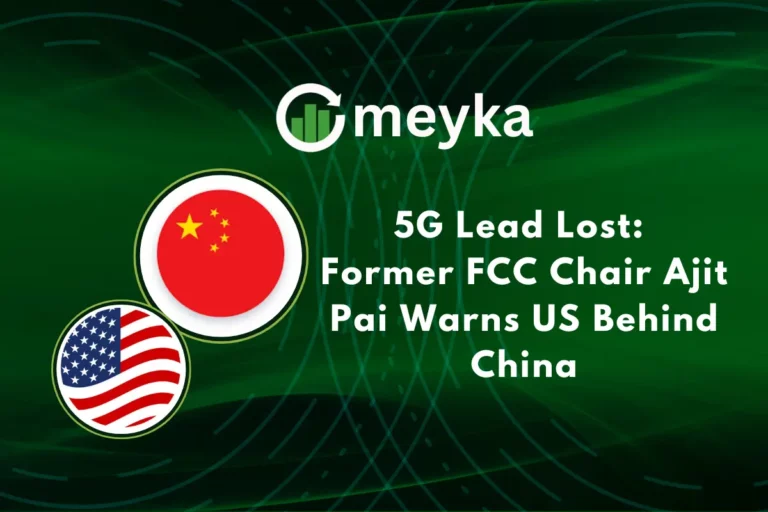Samsung AI Innovations Drive Stock Rally Amid Global Tech Momentum
Samsung shares are on fire. On October 10, 2025, they jumped as much as 6.1%, pushing toward a new all-time high. That rise comes as investors place big bets on AI demand and memory chip recovery. We see a fresh narrative: Samsung is no longer just about phones and appliances. It’s stepping into a core AI role.
What Samsung Is Doing in AI
Samsung has rolled out a wave of AI innovations. Its vision is “AI for All,” bringing intelligence into every device and domain. On the smartphone side, Galaxy AI is now deeply integrated: tools like Photo Assist, Live Translate, Drawing Assistant, and contextual features like the Now Bar enhance everyday use. Under the hood, Samsung is pushing its memory business. The company recently gained Nvidia certification for HBM3E memory chips, a big step in catching up with rivals.
Perhaps most striking is the partnership with OpenAI. Samsung plans to supply memory for Project Stargate and collaborate on floating data centers and power plants. This deal is expected to demand up to 900,000 DRAM wafers monthly from Samsung, a level of scale that could reshape its chip business.
How AI Drives Revenue & Margins
Why all the investor excitement? Because AI infrastructure needs memory, especially high-bandwidth memory (HBM), DRAM, and advanced NAND. More AI means more demand for these components. When demand is tight, chip prices rise. That lifts margins. Samsung is well-positioned in both memory and advanced packaging.
Analysts are reacting. Some have raised price targets on Samsung shares, citing stronger memory pricing and growing AI orders. Also, Samsung’s HBM3E certification opens doors to Nvidia’s high-end AI accelerators, potentially unlocking new high-value contracts.
Stock Reaction
Here’s what’s happening on the numbers front:
- The stock rose ~6.1% in one session, reaching ~94,400 won.
- Year-to-date, Samsung shares are up ~76%.
- Its market cap stands at US$390 billion.
- After announcing the OpenAI partnership, its shares jumped ~4.7%.
- SK Hynix, Samsung’s rival, also soared ~12% on the same news.
Competitive & Macro Context
Samsung isn’t alone in this AI chip race. SK Hynix, TSMC, Micron, Nvidia, all are riding the AI wave. But there’s a twist: SK Hynix has recently overtaken Samsung in memory chip leadership, thanks to its focus on HBM. Samsung has to fight back with scale, new tech, and smart partnerships. It’s a deal with OpenAI that helps with that.
On the macro side, there is risk. The U.S. is considering annual approvals for chipmaking exports to China, adding regulatory friction to Samsung’s supply chain. Also, global tech valuations are under scrutiny. Some see parts of this rally as overbought, vulnerable to pullbacks.
Risks & What to Watch
We must be clear: this isn’t risk-free.
- Execution matters: manufacturing yield, scaling HBM, meeting tight specs.
- Pricing could reverse if supply surges or demand softens.
- Competitors like SK Hynix and others may undercut or leap ahead.
- Regulatory and export restrictions, especially U.S.-China dynamics, could hamper Samsung’s operations.
- Some quarters of 2025 showed weakness in AI chip sales and foundry losses for Samsung.
What to Watch Next
We from the investment and tech community should monitor a few key catalysts:
- Samsung’s next earnings report and guidance for memory margins.
- Announcements of new AI or data center deals, especially with big tech names.
- Memory chip price indices (DRAM, HBM, NAND) for early signals.
- Regulatory developments, especially U.S. export controls or trade deals.
- Certification and production progress for HBM4 (next-gen memory).
Conclusion
Samsung’s AI push is not just a tech story. It’s reshaping how investors value the company. The stock rally reflects belief in a new growth lane, powered by AI infrastructure, memory demand, and strategic partnerships like that with OpenAI. But the path ahead will test Samsung’s execution, its competitive edge, and how well it navigates regulation.
If it succeeds, Samsung AI could turn into a defining chapter. For now, investors should watch, weigh the risks, and stay alert.
FAQS:
Samsung faced more competition from other chipmakers. Some buyers also waited for cheaper options. Global rules and supply problems slowed growth and reduced excitement in the market.
Samsung will likely expand AI in phones, chips, and data centers. Demand may stay strong, but success will depend on prices, new technology, and global trade policies.
Samsung has strong AI plans a a rowing chip demand. It could be a good pick for long-term investors, but prices may rise and fall with the tech market.
Disclaimer:
This content is for informational purposes only and is not financial advice. Always conduct your research.






